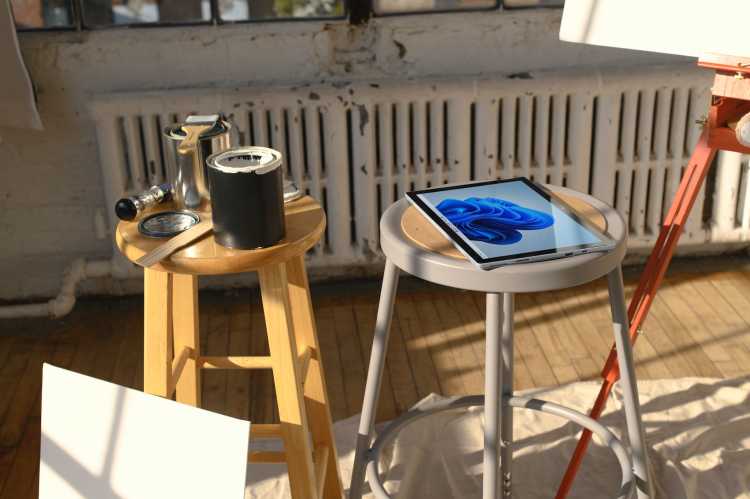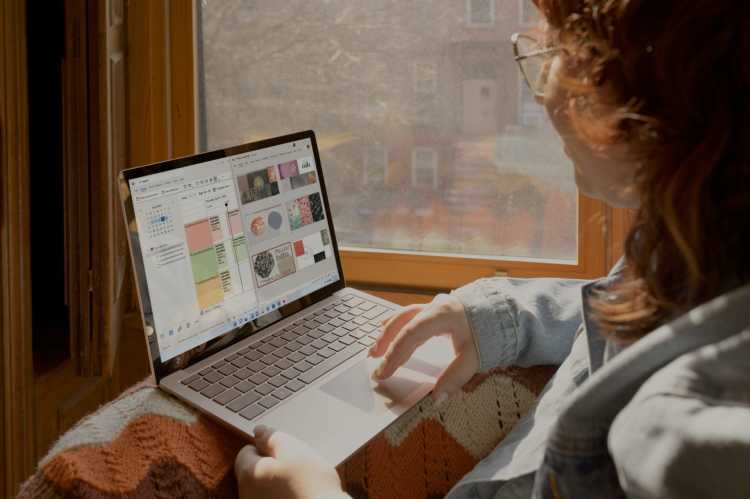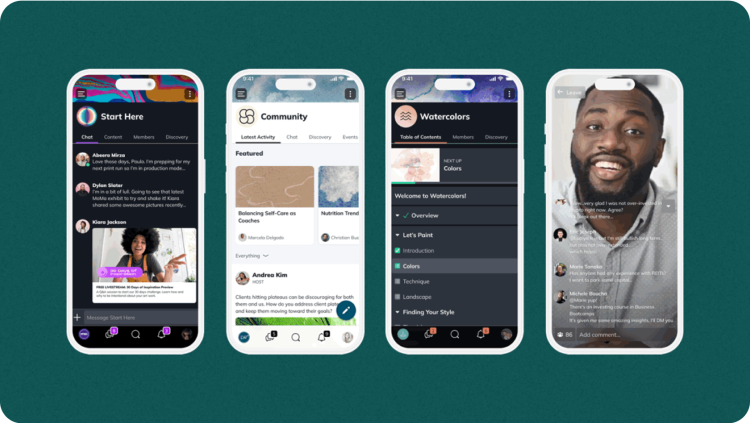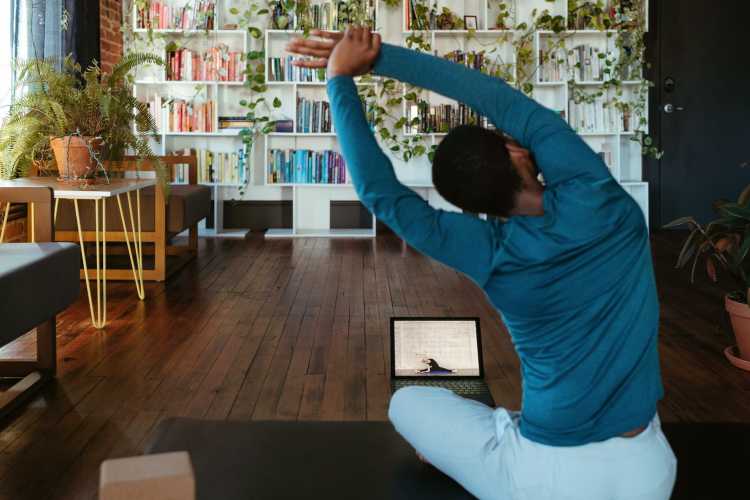Online Courses
How to Make Online Video Courses – 2025 Quick Guide
If you're wondering how to make online video courses, this quick guide will walk you through everything you need to know.
Author
Last Updated
August 14, 2025

Doug Neill created a visual organization strategy that helped him with note-taking – a process he called “sketch-noting.” He ended up building a business and community around his online courses – Verbal to Visual.
And after doing 5 pre-recorded courses, he’s trying something new now… cohort courses! (That’s a course taught live, online).
Doug is living proof that you can take something you’re passionate about and – from it – create a video course online.
If you've never created a video course before, it can be a bit intimidating. It's easy to get overwhelmed by thinking about gear, tech, saying the right thing, selling the course, and about a billion other issues.
But the thing is, creating videos for online courses isn't actually that difficult. The tech is getting better every year, making it more and more accessible for EVERYONE! In many cases, you just need a phone.
If you're wondering how to make online video courses, this article will walk you through everything you need to know.
If you want more support in building your online community, come join OUR Mighty Community for free and meet other new and established community owners! We’d love to meet you. Join for free!
2 Options for online video courses
Prerecorded
This is the traditional option for online courses, and probably one of the best-known ones. A pre-recorded course usually uses a learning management system (LMS) to outline the course material into units and lessons.
This type of course, also known as an asynchronous course, lets your audience go through it at their own pace. They can watch the videos at their leisure.
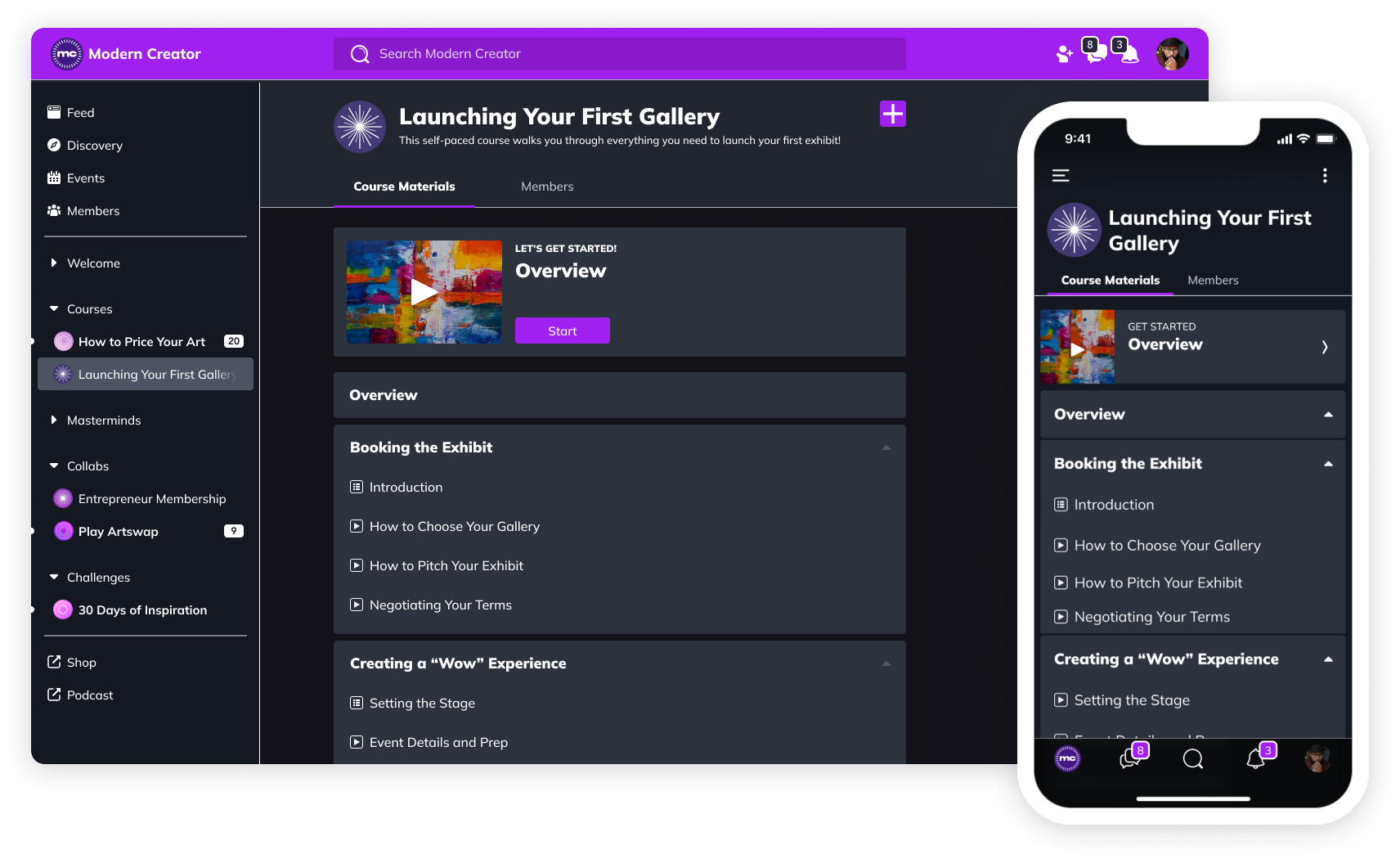
Cohort
Cohort-courses are newer on the scene, but they are absolutely fantastic! A cohort course – AKA a synchronous course – is taught live, either all at once or in installments.
Your audience shows up at a pre-arranged time and watches you deliver the course material. A cohort course could include live Q&As, class discussions, or group projects.
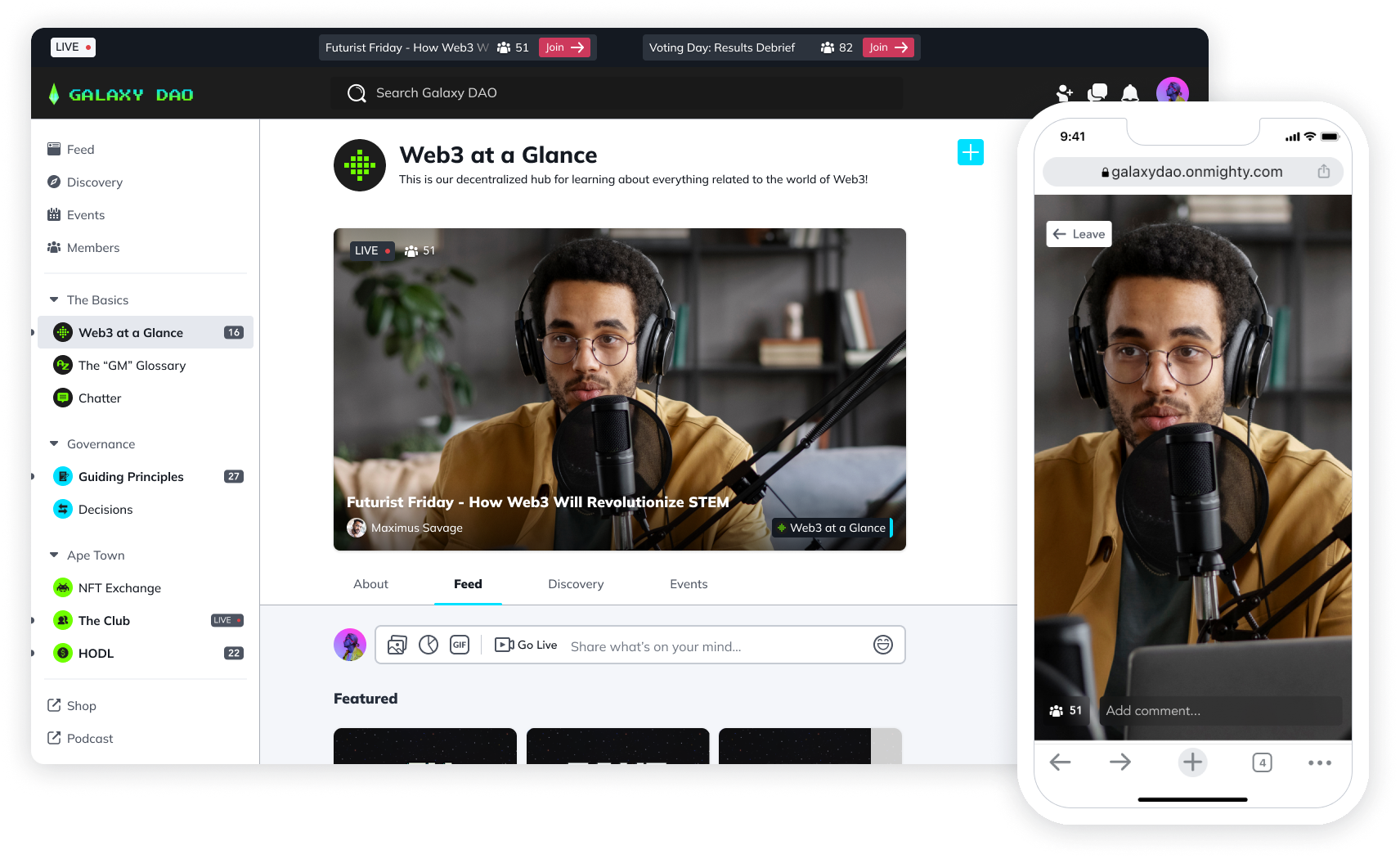
And with the help of a modern course platform, you can turn a cohort course into a pre-recorded course and have it do double duty.
How to choose between synchronous or asynchronous
Here’s a quick guide for how to choose between a synchronous (live, cohort course) and an asynchronous (pre-recorded) course.
If Yes... | If No... | |
|---|---|---|
Are your students self-directed and autonomous? | Try Asynchronous | Try Synchronous |
Does your material ever change? | Try Synchronous | Try Asynchronous |
Do students require live feedback and support? | Try Synchronous | Try Asynchronous |
Do your students have limitations in joining through a live session, either because of learning style or lifestyle? | Try Asynchronous | Try Synchronous |
Will the students need to workshop ideas, have discussions, or work together? | Try Asynchronous | Try Synchronous |
Things to consider for online video courses
These are a few considerations for the technical side of your online course. If you need to, check out our full article on equipment for online courses.
Formatting. Your course formatting will dictate some of the equipment you need. If you are live streaming, you can just use a course platform. If you plan on sharing a screen, you might need a screen capture program (although Zoom works too).
Camera. What kind of camera do you need for online video courses? You could invest in a fantastic DSLR. But, smartphones and webcams have come so far that they make a perfectly good video too. If you have a good camera at your disposal, that's great. But if not, don't let it stop you from making your course videos.
Sound. Sound is really important in online courses. Probably more than video quality. If you have access to a lapel mic or desktop condenser mic, it will make a big difference to your course quality. If not, try a pair of headphones or earbuds… just getting a mic closer to your mouth will improve the sound quality.
Editing. Are you going to edit your course? You don't have to. Courses can be absolutely fantastic without any editing. And don't get too stressed about those "ums" and "ahs". If you decide to edit, you may want to decide on editing software. Adobe Premiere is one of the best in the business. Or, if you need a free option, DaVinci is great.
Platforms. Where are you going to host your online course? It could just be on YouTube. But most creators choose an online course platform because it gives you a combination of hosting and selling options. At Mighty, we’ve built an awesome online course platform that works for live or pre-recorded courses!
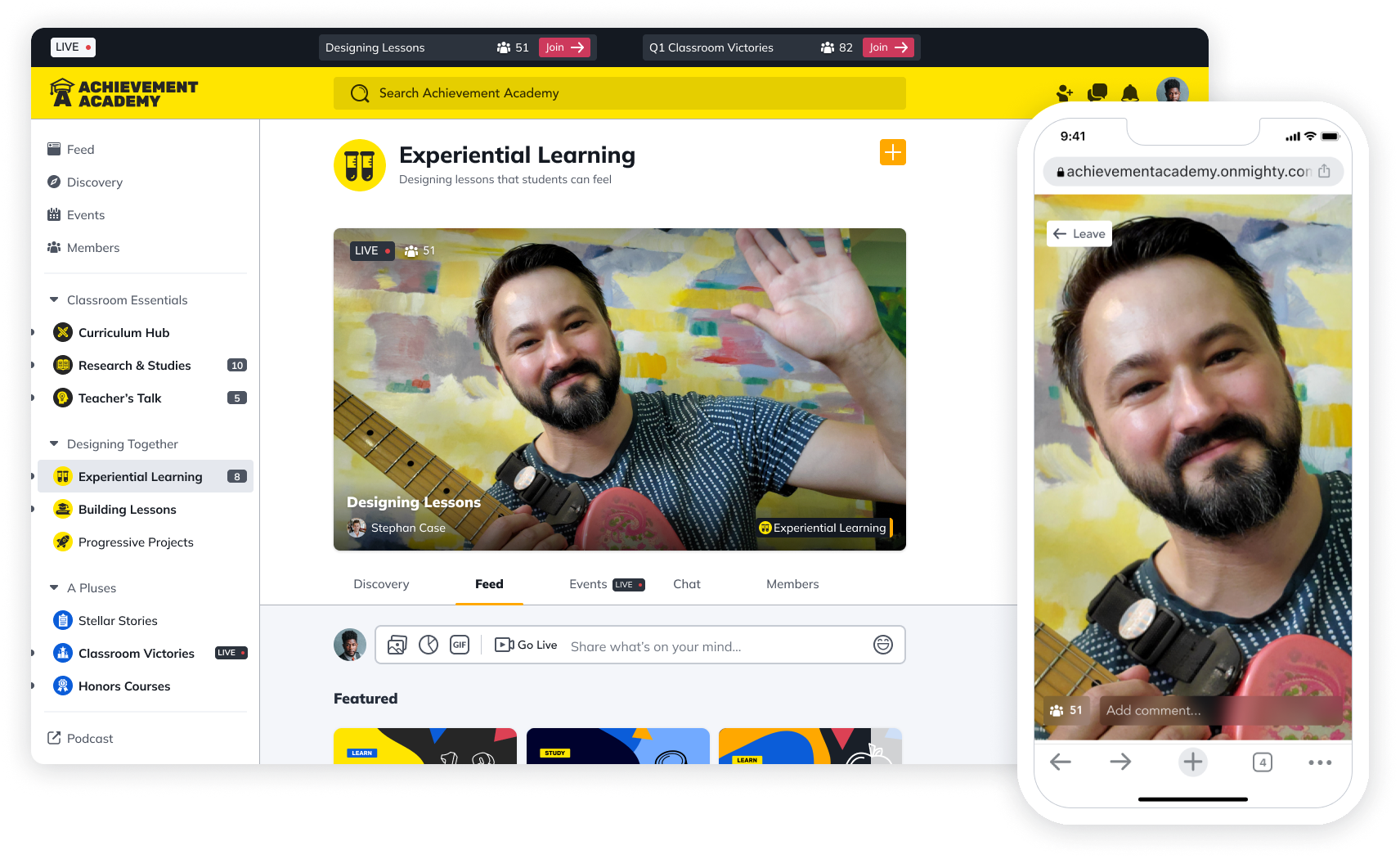
How to make online video courses
Step 1: Find your Ideal Member
The first step has nothing to do with the video itself, but it's probably one of the most important. A course without an Ideal Student is way more likely to fail.
To get clear on who your Ideal Student is, ask yourself the following questions:
What challenges do they have?
Who are they? Where are they from?
How do your story and knowledge enable you to help them?
What are they really paying for you to learn what you can teach them?
And, you don't need to do this work in your office. Go and ask your Ideal Students these questions! The answers might surprise you. And they can help you design the best video course possible.
Step 2: Define your Big Purpose
Once you've done the background work to figure out what problems you are going to solve for your students, you can design a Big Purpose.
At Mighty, we use the idea of a Big Purpose as a replacement for a traditional business statement.
It looks something like this:
Step 3: Planning and scripting
Okay, so you've done the background work. The next step to creating videos for online courses is to plan the video itself.
You can decide how far you want to go with this. At the very least, we'd recommend an outline of your content. That way you can make sure you're hitting on the material that your Ideal Students need to hear.
Some people like to create a slideshow and use that as a reference. That's a great strategy, as long as you don't read off the slideshow! Nothing kills a course faster than somebody reading off slides.
Scripting your video can work great too in some cases. But scripting is probably best for a pre-recorded, asynchronous course video.
When you start trying to script a live stream it loses some of the magic. Better to give yourself an outline and trust yourself to fill in the blanks with the important stuff.
But – at the end of the day – there’s no one right way to do it. You need to figure out what feels best for you and your presentation style.
Step 4: Setup and testing
The next step for how to make online video courses: setup and testing.
We talked about the gear above, so you already have an idea of what you need. Your setup might be as complicated as cameras, lights, backdrops, and a screen capture program.
Or, it might be as simple as plopping yourself in front of a wall with your face to a window – incidentally, this is a great way to get good lighting on a budget.
Do make sure you test your equipment and make sure it's working. Test your tech to make sure you're comfortable using it.
This will help you avoid foibles on the day of the course.
It might not matter quite as much if you are pre-recording a course. But – even if you’re pre-recording – there's nothing worse than recording for 20 minutes and realizing the mic wasn't working!
Step 5: Sell
The order of operations will vary here based on what type of course you're creating.
Cohort courses: can be sold in advance. This is great because you can validate your course idea before you ever deliver it. If you don't make enough sales, you don't need to do the course.
Pre-recorded courses: it's less common to sell pre-recorded courses, but not impossible! If you have a waiting list or you're selling off of a webinar, sometimes you can make the sale before you even make the course. Again, this can be a great strategy to make sure you are going to have students.
But it's common to sell an asynchronous course after it's made too.
Step 6: Deliver
The final step in creating online course videos, deliver the course!
If you're doing a court course, get ready to go live. It can be a little bit nerve-racking, but live streaming is a lot of fun.
It's not going to be perfect. Give yourself permission to not be perfect. You might say the wrong things or get lost sometimes.
And that's okay. Be confident and know that you are going to rock it!
Ready to start?
We've walked you through how to make online video courses, and the next step is to get started!
And if you're looking for an awesome place to build a course-based business, come check out Mighty. Mighty comes with live streaming capabilities built in, giving you everything you need to create and presell a cohort course. Chat and questions are also included, and so are scheduling options, RSVPs, sales pages, and more!
Plus, if you want an asynchronous course, Mighty comes with a beautiful LMS that's top of the pack. You can custom-build a traditional course, adding features like live events and communities to meet the needs of your audience.
Mighty is doing something different with cultural software, bringing courses, community, content, and commerce together. And you can sell in 135 different currencies, plus there's a great app for every device.
Don't take our word for it! Come try it free for 14 days - no credit card required.
Ready to start building your community?
Start a free 14-day trial to explore Mighty—no credit card required.
More like this
Join Mighty Community
Learn the principles of Community Design™ (and see them in action) alongside thousands of creators and entrepreneurs. It's free to join!

Online Courses
Creating a Course
Teaching a Course
Course Platforms
Selling a Course
Communities & Memberships
Community Platforms
Managing a Community
Building a Community
Growing a Community
Monetizing a Community
Content Creation
Creators & Entrepreneurs
Monetization
Content Creation
Starting a Business
Website Builders
Creating & Managing a Website
Events
Event Platforms
Hosting & Marketing Events
Branded Apps
Creating a Mobile App
Coaching Apps
Community Apps
Coaching
Mastermind Groups
Starting a Coaching Business
Coaching Platforms
Filter by Category
Online Courses
Communities & Memberships
Creators & Entrepreneurs
Events
Branded Apps
Coaching
Start your free trial
14 Days. No Credit Card Required.



